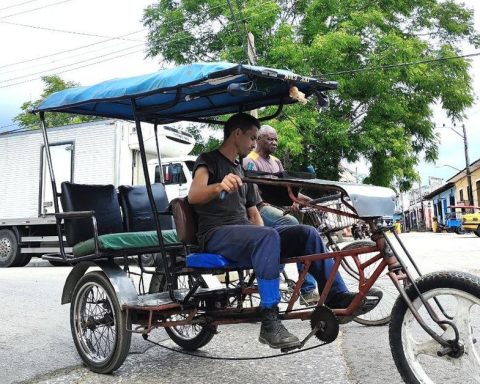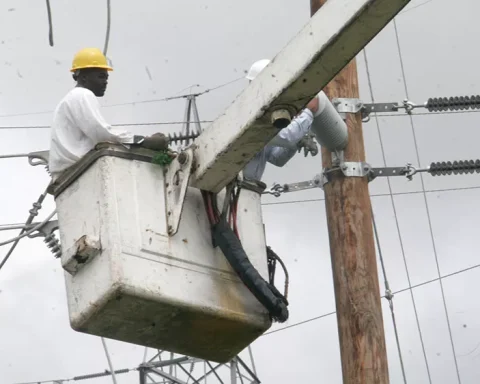The prosecutor, Alicia Ghione, who is investigating the complaints of sexual exploitation of minors against the senator of the National Party, Gustavo Penadés, asked for his lawlessness. The request was presented before Judge Marcela Vargas that she must now submit to the Supreme Court of Justice so that it can then go to Parliament.
No senator or representativefrom the moment he is elected, can be criminally charged. Parliamentary privileges constitutionally protect them from being called to justice. At the time of its establishment, it was expected that there could be a political management of the Judiciary and this prevented them from being subjected to unfair processes for ideological reasons.
For a legislator to have his privileges lifted, the prosecution –in this case the prosecutor Alicia Ghione– you must ask him, just as he didto the corresponding judge and then the Supreme Court of Justice as an institution makes the formal application to Parliament. The request enters the Chamber of Senators, the legislators are informed and passes to the Constitution and Legislation Committee. There, the members study the conformed parliamentary file and make a report advising or advising against the lawlessness. When a vote is taken, that happens to the plenary session of the chamber.
He impeachment is approved with two thirds of the votes of the plenary session. From there, the senator in question remains suspended from office and at the disposal of the competent court, like any other citizen.
“No senator or representative, from the day of his election until his dismissal, may be accused criminally, not even for common crimes that are not those detailed in article 93, but before his respective Chamber, which, for two thirds of the votes of the total of its components, it will decide if there is room for the formation of cause, and, if so, it will declare it suspended from its functions and it will be at the disposal of the competent Court”, states article 114 of the Constitution.
As reported The ObserverPenadés sent a letter to Argimón that expressed: “In attention to the circumstances of public knowledge, if the Judicial Power requests the lifting of the parliamentary privileges corresponding to my investiture, it proceeds to process said request immediately, advancing to you since I will not formulate opposition of any kind”.
In this way, the senator indicated that if the Justice requests the lifting of the privileges, it wants the Chamber of Senators to approve it immediately without previously discussing it in the Constitution and Legislation Commission as provided in the procedure.
Argimón has already announced that the request will be processed quickly. “Without a doubt, it will have a due diligence, in fast terms,” she stressed.
Bianchi, Manini and Ezquerra
The then senator of the People’s Party Daniel Bianchi collided three cars that were parked on Calle 20 in Punta del Este –between 21 and 24– in January 2019 and his car ended up on fire, for which a crew had to go fire brigade to assist and extinguish the flames. At the beginning of that year, the Chamber of Senators voted for the impeachment to be made available to the Prosecutor’s Office. In July, after having been subjected to the corresponding process, they voted to reinstate him to the plenary session.
The camera deputies voted in November 2017 for the impeachment of deputy Wilson Ezquerra, who ran over a woman while driving in a serious state of drunkenness (he had 1.49 grams of alcohol per liter in blood). Ezquerra faced legal proceedings for failing to comply with the misdemeanor law. After completing 12 days of community work, he returned to Parliament.
The case of Senator Guido Manini Ríos is the most recent and controversial, given that the plenary session decided to deny Justice the impeachment, in the absence of Manini Ríos, who was not in court at the time of voting. Although Manini Ríos was an elected senator and had not yet been sworn into office, the Prosecutor’s Office understood that he had parliamentary privileges. For this reason, the process to remove them began in November 2019 (despite the fact that the senators of the new legislature began in February of the following year).
The referent of the Cabildo Abierto had stated in the electoral campaign that he would not rely on the privileges to avoid being charged by the Justice as a result of the alleged omission to denounce the confessions made by the repressor José Nino Gavazzo before a Court of Honor in 2018.
Finally, the Electoral Board of his party asked him to break that promise since the Uruguayan Justice, as they argued at the time, did not offer guarantees of independence. Although his impeachment was voted in the affirmative in the Constitution and Legislation Commission, it did not reach the two-thirds necessary for it to be approved in plenary session. The Cabildo Abierto, the National Party and the Batllistas sector (Colorado Party) voted against the measure.
















